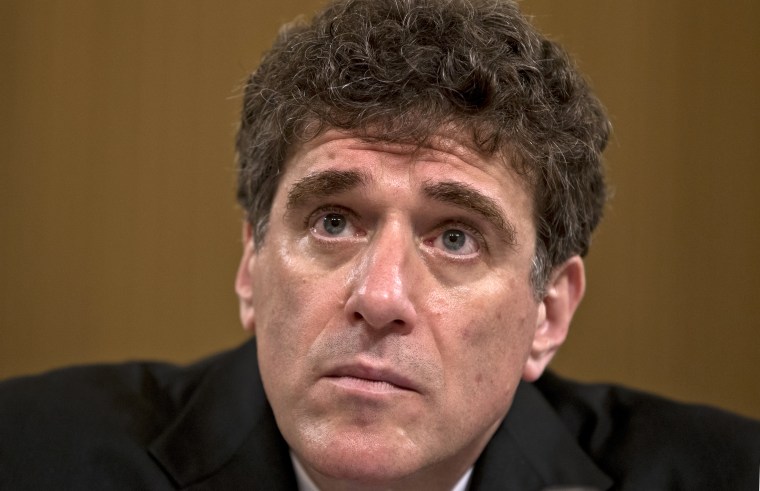Steven Miller, who stepped down this week as acting commissioner of the IRS amid revelations that the agency targeted conservative groups for special scrutiny, told Congress Friday morning that the effort was “a mistake, and not an act of partisanship.”
“I want to apologize on behalf of the IRS for the mistakes that we made and the poor service that we provided the American public,” Miller told members of the House Ways and Means committee, but added: “I do not believe that partisanship motivated the practices.”
Miller said the targeting—in which the IRS has admitted to using keyword searches for terms like "Tea Party" and "patriot"—occurred when the agency was looking for ways to sift through a flood of new applications for tax-exempt status, many of them from newly formed Tea Party groups.
“Foolish mistakes were made by people trying to be more efficient in their workload selection,” Miller said, arguing that it made sense to look for ways to streamline the process of examining applications.
“People in Cincinnati decided, 'let’s start grouping these cases, let's centralize these cases,'” he continued. “The way they centralized it: troublesome. The concept of centralization: not.”
Related: Obama installs new IRS chief, continues offense
Both Republican and Democratic lawmakers focused much of their questioning on whether Miller, former commissioner Doug Shulman, and Lois Lerner, the director of the IRS’s Exempt Organizations division, were truthful when asked by Congress over the last year about the targeting.
“We were repeatedly told no such targeting was happening,” Rep. Dave Camp, the committee chair, said during his opening statement. “That isn’t being misleading. That’s lying.”
“Mr. Chairman, I did not mislead Congress or the American people,” Miller, who was deputy commissioner during the period at issue, said later. “I answered the questions as they were asked.”
After Rep. Charles Boustany, a Louisiana Republican, played a video of Shulman, a Bush appointee who stepped down in November , telling the committee in March 2012 that such targeting had occurred, Miller said he believed Shulman had spoken incorrectly but was not purposely lying.
The Justice Department has opened a criminal probe into the targeting and the IRS's response to it, Attorney General Eric Holder said this week.
Related: Obama vows accountability at IRS after targeting
Camp used the chance to link the IRS episode to other stories dogging the White House—referring to a “culture of cover-up in this administration”—and to launch a broader assault on the tax system.
“This is a problem of the IRS being too large, too powerful, too intrusive, and too abusive of honest hardworking Americans,” Camp said.
Rep. Sander Levin, the ranking Democrat on the committee, slammed IRS leadership for demonstrating what he said was “a total disregard for the oversight role of the Congress.”
But Levin said he “strongly” disagreed with Camp’s claim of a culture of cover-up in the administration, and cautioned against using the hearing to score political points.
Asked by lawmakers about when he and other IRS officials became aware of different aspects of the targeting, Miller repeatedly said he did not remember.
